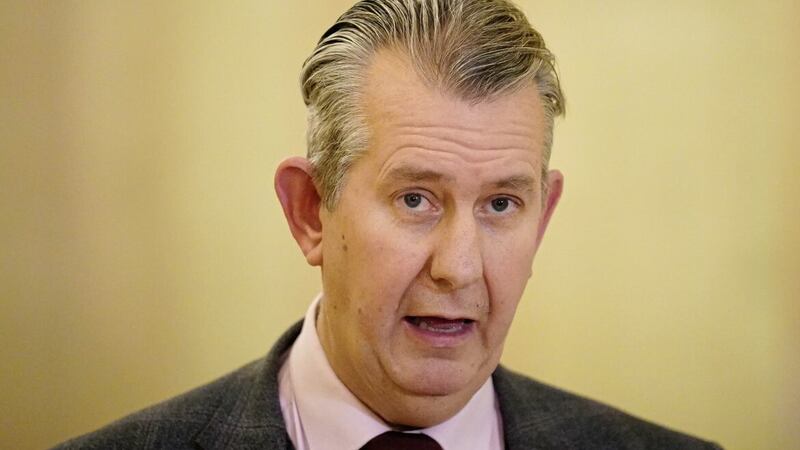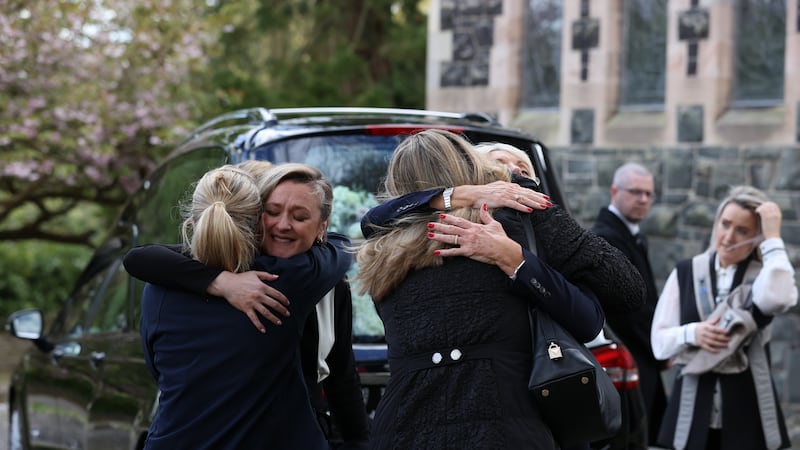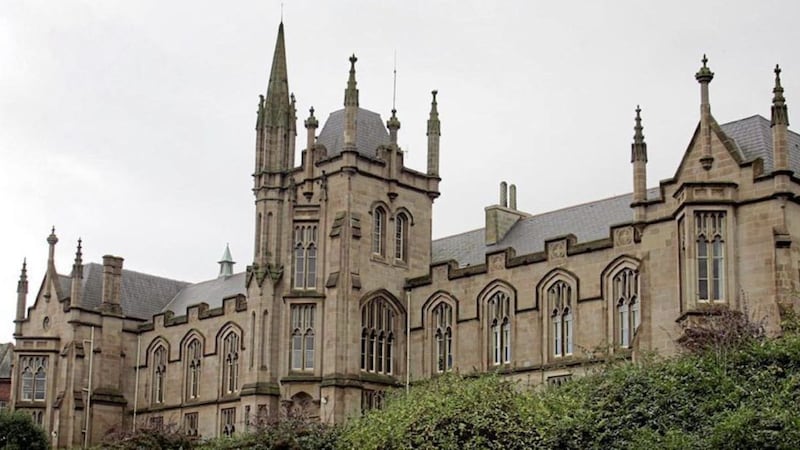Edwin Poots only lasted one month as DUP leader because he was so keen to get back into the executive he agreed a deal on an Irish language act literally overnight, then tried nominating ministers the next day, all without consulting his own party.
So his comments to RTE this Tuesday that the Good Friday Agreement will be “buried” without a “realistic” protocol deal have a large element of the theatrical, perhaps with added carelessness over putting Sir Jeffrey Donaldson on the spot. Relations between Mr Poots and his successor are complicated.
On Radio Ulster the same morning, Ian Paisley said devolution will “never return” if the House of Lords guts the protocol bill. This followed an interview the previous day when he had sounded relaxed and positive about a deal. It appears that somebody had a word. Of course, Mr Paisley always enjoys a little mischief-making.
The DUP has been genuinely unnerved by the swift improvement in tone between London, Dublin and Brussels. It was particularly upset by the apology to Ireland from Steve Baker, the NIO junior minister and former ERG chair. Although prime minister Liz Truss said Baker was speaking for himself she also said there is no reason the assembly and executive should not be restored immediately.
A protocol deal is clearly anticipated and government patience with the DUP has run out. Having rendered itself a spectator by abandoning Stormont, the party’s only option is to issue ever more ominous warnings about devolution while hoping whatever deal emerges can be spun as a win for unionism and the DUP’s abstentionist strategy.
As that strategy has become more desperate, strains within the DUP have worsened and the range of outcomes it believes it can sell to unionist voters has shifted.
Since before becoming leader, Sir Jeffrey has drawn a careful distinction between the protocol and the sea border, promising only to remove the latter. The government’s green channel proposal could deliver this promise, with the right presentation. This is a realistic possibility from upcoming negotiations but parts of the DUP are now rumbling about removing Northern Ireland from the EU single market, as a matter of practicality and principle. That would mean dropping the protocol’s sections on state aid, VAT, automatic adoption of EU laws and European Court oversight. While all those aspects of the protocol are flawed and might be improved, it increasingly looks like the DUP is setting itself a test that cannot be met.
Government spin has its own air of desperation. As rumours of a deal swirled around the Tory conference on Monday, foreign secretary James Cleverly told the Guardian “forces driving towards this inevitable positivity are like the Nash equilibrium in maths.”
The Nash equilibrium is when both sides understand their negotiating positions so well, a mutual compromise is the only strategy left. The weakness of the UK’s position is obvious; the EU is also at an impasse as parts of the protocol are simply unworkable, as it has effectively admitted on medicines and food. However, Brussels still holds most of the cards and will have to compromise less. Mr Cleverly’s clever-sounding optimism really describes the calling-off of an exhausted stand-off, with relieved smiles all round. Both sides have been working on a data sharing system that will be the core of any deal, reducing sea border checks and unlocking concessions in other areas. This would be a major political achievement, yet still fall well short of what the DUP is leading its supporters to expect.
The government is determined to avoid an assembly election, despite claims from Mrs Truss this week it must go ahead if devolution is not restored by October 28.
Although protocol talks could be given as a reason for stretching the deadline, if and when a deal is reached it will be presented to the DUP as take it or leave it.
Sir Jeffrey could take it, restore Stormont and swerve the immediate backlash from internal critics, external rivals and the unionist electorate. The next scheduled assembly election is five years away, plenty of time for events to move on.
But it has become apparent he is not that type of leader. Further stalling is the safest assumption, while attention turns to the 25th anniversary of the Good Friday Agreement next April and a long-overdue reassessment of power-sharing.
If the DUP is not back at work by that point, the next deal to be reached over its head will be for the future of Northern Ireland.









